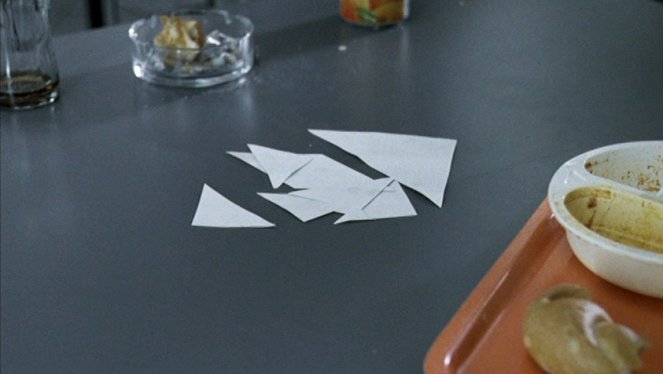Realização:
Michael HanekeArgumento:
Michael HanekeCâmara:
Christian BergerElenco:
Lukas Miko, Georg Friedrich, Klaus Händl, Udo Samel, Claudia Martini, Anne Bennent, Branko Samarovski, Axel Sichrovsky, Dorothée Hartinger, Otto Grünmandl (mais)Conteúdos(1)
In this film, clips of TV news segments on warfare in the former Yugoslavia alternate between stories of urban disconnection. And while continuing to approach filmmaking from an anti-psychological perspective, filmmaker Michael Haneke assembles a unified work from snippets of narrative, such as Inge (Anne Bennent) and Paul Brunner (Udo Samel) struggling with a newly adopted daughter, and a homeless Romanian boy wandering the streets of Vienna. (Kino Video)
(mais)Críticas (2)
71 Fragmentos de uma Cronologia do Acaso e O Sétimo Continente são exatamente o oposto do porquê de eu ter caído no cinema quando era criança. Zero de poética visual, gradação de história ou emoção. Sem cores nem tons. Apenas mecanicamente — embora intelectualmente brilhante — filosofando sobre a brutalidade ou a impenetrabilidade do mundo, deliberadamente unido à insensibilidade das tomadas estáticas, por vezes extremamente longas. Edição desumana de propósito, porque Haneke é um rebelde e não quer manipular o espetador com o que torna os filmes agradavelmente digeríveis (edição) ou emocionalmente atraentes (música).
()
Haneke's return to the radical approach of his debut. An incoherently chopped stream of fragments, long, seemingly useless details of mundaneness, and documentary inserts in the form of news from massacres and wars. Another player appears in Haneke's cold and withdrawn world – coincidence. The director's fragmentary vision stands beside the analysis of the disintegration of modern values, and it is a vision that presents disjointed scenes to the viewer. Is there any motivation or interconnectedness between them? Does madness and decay spring from namable sources? Haneke's answer is chilling with its non-participation and absurdity. His small world is connected to the world of great history by a moment of moral crisis... continuous vessels in which blood, anger and hopelessness spill over. Although the cruelty of great events in history is not surprising, the small ones always get to us. At the same time, as Haneke shows, it is the same flesh, the same evil. The same creature. Mensch.
()

